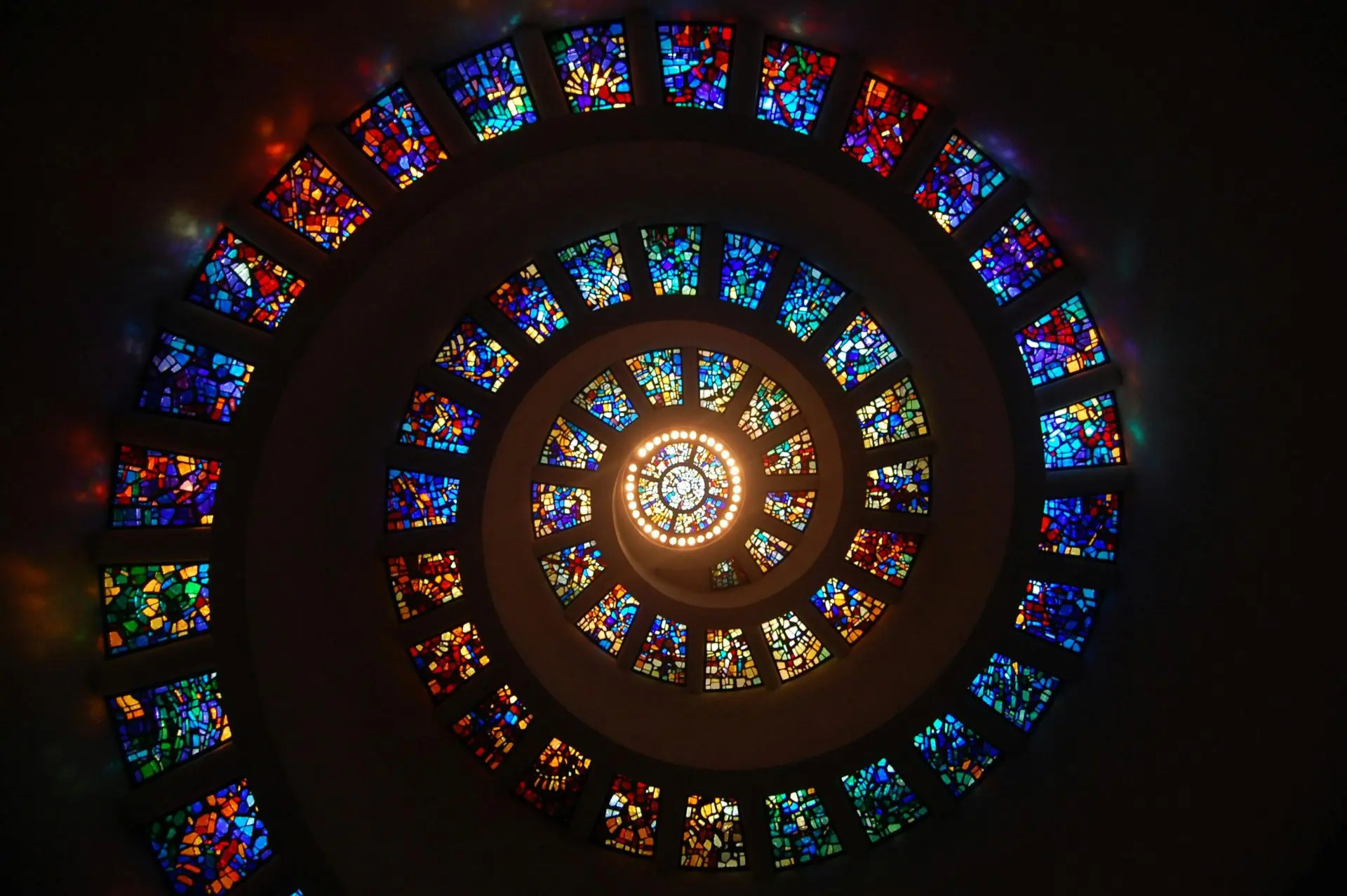Ghosts: Spirits with Unfinished Business

Looking for more amazing products? Check out our online store and explore our collection here! Happy shopping!
Before diving in, please note: This post is for informational purposes only. If you’d like to know more about how we approach topics, feel free to check out our friendly Disclaimer Page.
Hey there, amazing readers! 
We’re committed to delivering quality posts, and your support (even just sticking around despite the ads) means everything to us. So, bear with us, and thanks for helping us keep the good vibes rolling. Now, on to the fun stuff!
TRANSLATE BUTTON AT THE END OF THE ARTICLE
Introduction
Ghosts, often seen as spirits of the deceased lingering in the mortal realm, have fascinated humanity for centuries.
These ethereal entities are frequently depicted as having unresolved matters or unfinished business that keeps them from moving on to the afterlife.
This extensive guide explores the concept of ghosts, their various cultural interpretations, and the common beliefs surrounding their presence and purpose.
Dive into the world of spirits and discover why some souls might choose to stay behind.
The Concept of Ghosts
Historical Perspectives
The idea of ghosts has deep historical roots and varies widely across cultures:
Ancient Beliefs: Many ancient civilizations, such as the Egyptians and Greeks, believed in spirits and an afterlife, where ghosts could linger if they had unresolved issues.
Medieval and Renaissance Views: During these periods, ghosts were often seen as omens or manifestations of unfinished business, reflecting societal fears and religious beliefs.
Modern Interpretations
Today, the concept of ghosts has evolved but remains a prevalent topic in popular culture:
Cultural Representations: Modern media often depicts ghosts in various ways, from vengeful spirits to benign entities seeking closure.
Scientific Perspectives: While scientific explanations for ghost sightings are often skeptical, the phenomenon continues to intrigue researchers and enthusiasts alike.
Types of Ghosts
Residual Hauntings
Residual hauntings involve repetitive manifestations of past events:
Recorded Events: These are often described as “recordings” of past activities, replaying in a loop without interaction with the living.
Characteristics: Such hauntings typically occur in specific locations and are triggered by certain conditions, such as anniversaries or significant dates.
Intelligent Spirits
Intelligent spirits are believed to have a conscious presence and purpose:
Communication: These ghosts are thought to interact with the living, often seeking to convey messages or seek resolution for their unfinished business.
Personal Connections: They may have specific individuals or locations they are connected to and can exhibit recognizable traits of their former lives.
Common Themes of Unfinished Business
Regret and Guilt
Many ghosts are believed to remain due to feelings of regret or guilt:
Unresolved Issues: These spirits may have unresolved matters from their lives that they feel need to be addressed before they can move on.
Personal Connections: Often, the unfinished business involves family members or loved ones whom the spirit feels they have wronged or left behind.
Untold Stories
Some ghosts are thought to linger because they have stories or messages that were never shared:
Historical Figures: Spirits of historical figures may be believed to haunt places related to their lives, hoping their stories will be heard and remembered.
Unfinished Work: Artists, writers, and other creators might be thought to return to complete projects or share their final thoughts.
Ghostly Manifestations
Visual Appearances
Ghosts are often described in various visual forms:
Apparitions: Some are seen as full-bodied figures, resembling their appearance in life, while others may be shadowy or translucent.
Environmental Changes: Ghostly presences can also be indicated by environmental changes, such as sudden drops in temperature or unexplained noises.
Sensory Experiences
Ghosts can affect more than just visual perceptions:
Auditory Signs: Ghosts might be heard through unexplained sounds, voices, or footsteps that have no apparent source.
Tactile Sensations: Some people report feeling a ghostly touch or experiencing other physical sensations, such as a sudden chill or the feeling of being watched.
Cultural Beliefs and Practices
Western Traditions
In Western cultures, ghosts are often tied to specific rituals and practices:
Connect with Angels, Guides, and Master Teachers – begin here.
Funeral Rites: Traditional funeral practices and rites are believed to help spirits transition to the afterlife, preventing them from becoming restless.
Spiritual Communication: Practices such as mediumship and séances are used to communicate with ghosts and address their unfinished business.
Global Perspectives
Different cultures have unique interpretations and rituals related to ghosts:
Asian Beliefs: In many Asian cultures, such as Chinese and Japanese, ghosts are seen as spirits of ancestors or individuals who have experienced unjust deaths.
Rituals and festivals often focus on appeasing these spirits.
Indigenous Traditions: Indigenous cultures around the world have diverse beliefs about spirits and ancestors, often incorporating ghostly interactions into their spiritual practices and storytelling.
Investigating Ghosts
Paranormal Research
The study of ghosts, or paranormal research, involves various methods and tools:
Ghost Hunting Equipment: Tools such as EMF meters, infrared cameras, and EVP (electronic voice phenomenon) recorders are used to detect and document ghostly activity.
Methodologies: Investigations often involve interviewing witnesses, analyzing environmental data, and conducting controlled experiments to capture evidence of ghostly phenomena.
Skeptical Views
Skeptics offer alternative explanations for ghost sightings:
Psychological Factors: Perceptions of ghosts may be influenced by psychological factors, such as stress, sleep deprivation, or suggestibility.
Environmental Causes: Some phenomena attributed to ghosts may have environmental explanations, such as electromagnetic interference or structural issues causing unusual noises.
Ghost Stories and Legends
Famous Hauntings
Throughout history, certain locations have gained fame for their ghostly legends:
Haunted Houses: Sites like the Winchester Mystery House and the Tower of London are renowned for their reputed hauntings and ghost stories.
Historical Events: Ghost stories often revolve around significant historical events or figures, adding layers of intrigue and drama to their legends.
Personal Accounts
Many people share personal experiences with ghosts:
Anecdotal Evidence: Personal stories and testimonies provide insight into individual encounters with spirits and their impact on people’s lives.
Cultural Impact: These accounts often reflect broader cultural beliefs and contribute to the ongoing fascination with ghosts and the supernatural.
Ghosts in Popular Culture
Literature and Media
Ghosts have a prominent place in literature and media:
Classic Literature: From Shakespeare’s “Hamlet” to Charles Dickens’ “A Christmas Carol,” ghosts have been central to many literary works.
Modern Media: Ghosts continue to be a popular subject in films, television shows, and books, often exploring themes of unresolved issues and the supernatural.
Ghostly Appearances
Ghosts are depicted in various forms across media:
Horror Genres: Ghosts frequently appear in horror films and books, where they are often associated with fear and suspense.
Comedic Takes: In some media, ghosts are portrayed in a humorous light, providing comedic relief and exploring lighter aspects of the supernatural.
Addressing Unfinished Business
Rituals and Practices
Different cultures have various ways of addressing spirits with unfinished business:
Ceremonial Practices: Rituals and ceremonies are performed to help spirits find peace and resolve their issues, allowing them to move on.
Symbolic Acts: Acts such as offering prayers, making offerings, or performing specific rites can be seen as ways to help spirits complete their unresolved matters.
Personal Reflections
Individuals can also take personal steps to address their own unfinished business:
Reflection and Resolution: Reflecting on unresolved issues and seeking closure can help individuals come to terms with their past and move forward.
Forgiveness and Letting Go: Embracing forgiveness and letting go of past regrets can be a powerful way to address personal unfinished business and achieve inner peace.
Conclusion
The concept of ghosts as spirits with unfinished business offers a compelling view into the human fascination with the afterlife and the supernatural.
Whether seen through historical beliefs, cultural traditions, or modern interpretations, ghosts continue to intrigue and inspire.
By exploring their origins, manifestations, and cultural significance, we gain insight into the ways unresolved matters can influence both the living and the deceased.
Understanding ghosts and their stories can provide a deeper appreciation for the mysteries of life, death, and the enduring quest for resolution.

The Enlightenment Journey is a remarkable collection of writings authored by a distinguished group of experts in the fields of spirituality, new age, and esoteric knowledge.
This anthology features a diverse assembly of well-experienced authors who bring their profound insights and credible perspectives to the forefront.
Each contributor possesses a wealth of knowledge and wisdom, making them authorities in their respective domains.
Together, they offer readers a transformative journey into the realms of spiritual growth, self-discovery, and esoteric enlightenment.
The Enlightenment Journey is a testament to the collective expertise of these luminaries, providing readers with a rich tapestry of ideas and information to illuminate their spiritual path.
Our Diverse Expertise
While our primary focus is on spirituality and esotericism, we are equally passionate about exploring a wide range of other topics and niches 

To ensure we provide the most accurate and valuable insights, we collaborate with trusted experts in their respective domains 
Our blog originally focused on spirituality and metaphysics, but we’ve since expanded to cover a wide range of niches. Don’t worry—we continue to publish a lot of articles on spirituality! Frequently visit our blog to explore our diverse content and stay tuned for more insightful reads.
Hey there, amazing reader! 
Check out our store here and take a peek at some of our featured products below! Thanks for being awesome!













